By Shahzada Zulfiqar -
Although the five party coalition government in Balochistan headed by Dr. Abdul Malik Baloch does not feel threatened by opposition parties, it has been facing constant pulls and pressures from its own coalition partners, the Pakistan Muslim League(N) and Pashtoonkhwa Milli Awami Party.
After the 2013 general elections, PML(N) leader and Prime Minister Mian Nawaz Sharif, despite having enough majority to form its ruling coalition in Balochistan, nominated Dr. Malik as Chief Minister and appointed Mohammad Khan Achakzai, the PMAP nominee as Governor. Both PML(N) and PMAP had secured the same number of seats in the elections, i.e. 10, but after the inclusion of independent candidates and those on reserved seats, the parliamentary strength of the former rose to 22 while the latter could only end up on 14.
The National Party was the third in the numbers game with its 11 members. Jamiat Ulema Islam (Fazal) bagged 8 seats while the PML(Q), which had won 20 in 2008, now had only 4. Balochistan National Party (Mengal) which boycotted the last general elections scored 2 this time, including its leader Sardar Akhtar Mengal. The Balochistan National Party (Awami), the Majlis Wahdat ul Muslimeen and the Awami National Party could only win one seat each.
Prime Minister Nawaz Sharif showing his tilt towards nationalist parties thought that installing a Baloch nationalist government in the province would appease the angry Baloch, both the ones fighting in the mountains and living abroad in self exile. He has already assigned a task to Dr. Malik to initiate negotiation with these Baloch leaders. Baloch separatists are so far refusing to even meet him because of thorny issues which need to be resolved for creating an environment conducive enough for peace talks.
On this good will gesture towards nationalists, the PML(N)’s own MPAs, both the new entrants and those who returned to the assembly on party tickets, are extremely unhappy. They also complain of being sidelined in all policy formulations including budget proposals and law and order. Nawab Sanaullah Zahri, the senior minister who mustered the support of the required members (22 of his own party, 4 of PML(Q) and 8 of JUI(F) for the formation of a party led coalition, was disappointed when leader Nawaz Sharif opted otherwise. Mahmood Khan Achakzai, PMAP head and Mir Hasil Khan Bezenjo of the National Party also played major roles in diverting the minds of PML(N) leadership, they argued against a strong, independent tribal chieftain (Zahri) and preferred a middle-class, down to earth politician (Malik).
Dr. Malik, who took charge of his office on June 8 last year, started facing problems from the very first day in terms of forming a cabinet, then its expansion and later the distribution of portfolios. Due to disagreements among the ruling coalition, the cabinet was expanded after four months in October and the first cabinet meeting was only made possible on October 24. During the four months before, the provincial cabinet did not exist for all practical purposes as all the portfolios were controlled by the Chief Minister.
There is constant pressure on the Chief Minister on the part of the PML(N) coalition partners. A few months ago the Leaguer ministers and advisors handed over their resignations to their parliamentary leader Nawab Sanaullah for tendering it en bloc to the Governor. These ministers had been complaining about interference in their departments on the part of NP and PMAP.
On the eve of budget preparations this year, the Leaguers threatened to block the move for the provincial budget 2014-15. They complained that they had been ignored in the distribution of development funds and the bulk of federal PSDP had been allocated in the constituencies of PMAP members. Without the support of the Leaguers (26 PML(N), 4 PML(Q), 1 MWM and 1 Independent), the NP and PMAP members (25) would not be able to get a resolution passed in the assembly.
Despite these disagreements, the Chief Minister Dr. Malik still has tacit support from the Leaguers. The moment PML(N) leadership withdraws it’s support, the NP led coalition government would collapse like a house of cards. However, political observers say that Mian Nawaz Sharif would not repeat past mistakes when he once withdrew his support for Sardar Akhtar Mengal of the BNP and sent him home after only 17 months in office, causing further instability in the province.
“It was a mistake on my part when I withdrew my support from Sardar Akhtar Mengal’s government in 1998 and I still regret it”, the Prime Minister is on record as saying.
Nawaz Sharif even after the 2013 elections offered Sardar Akhtar Mengal his support to lead a coalition, but the latter rejected the offer on moral grounds, saying he can’t become Chief Minister with just two seats. Mengal was expected to get 6 to 8 seats in the polls but he accuses intelligence agencies, particularly the ISI, of manipulating election results against his candidates.
There is a general impression among political circles that the 2013 elections were manipulated in favour of the NP and PMAP with an expectation to get their support in the improvement of law and order in Balochistan and expanding Pakistan’s influence in Afghanistan.
The severe criticism in the speeches of PMAP leadership and harshness in the language of NP leaders against the military establishment, a staple of both parties in the past, has since ceded altogether. PMAP’s critics say that good relations with the military establishment could be gauged from the fact that its head Mahmood Khan Achakzai was chosen as special Pakistani envoy to Afghan President Hamid Karzai.
Prime Minister Nawaz Sharif thinks the NP may help uproot Baloch militancy while the PMAP, which is known for having very close relations with liberal elements in Afghanistan, may help the military establishment safeguard its influence in Kabul after the 2014 withdrawal of foreign forces.
One challenge Chief Minister Dr. Malik still faces is the precedents of bad governance set by his predecessor Nawab Aslam Raisani. Although the Chief Minister declared an educational emergency and enhanced education spending to a great extent, his government failed to ensure the attendance of doctors in government hospitals and teachers in schools.
But the biggest challenges faced by Dr. Malik and his ruling coalition are still the ongoing insurgency, the missing persons issue, target killings of Pashtoon ethnic groups and military operations in the province.
Dr. Malik has initiated the process of assuaging angry Baloch leadership and paid three visits to London in this regard where most of the Baloch separatist leaders live in exile. These include Khan of Kalat Mir Suleman Daud, Nawabzada Hyrbyair Marri and Nawabzada Brahandagh Bugti.
“It is a complex issue and we do not expect any breakthrough on this stage, however a committee comprising the province’s elderly politicians and tribal notables is under consideration which would meet separatist leaders”, said an official who is involved in the process.
He said the names which are under consideration for this committee are PML(N) leader Sardar Zulfiqar Khoso, Nawab Zulfiqar Ali Magsi, the former Governor Balochistan, Mir Elahi Bakhsh Somro, Begum Abida Hussain, Mir Balakh Sher Mazari and Hameed Haroon. These are all personalities who, in one or another, enjoy good relations with the estranged Baloch leaders.
“Yes it is correct that we are so far unable to make any breakthrough in negotiation, but my priority remains bringing militancy to an end in Balochistan for better Baloch prospects,” Dr. Abdul Malik said in an interview recently.
Missing persons is another thorny issue for the NP government that is tarnishing their image among the Baloch population. The recovery of bullet riddled bodies of missing persons continues in different areas of Balochistan. Voice for Baloch Missing Persons (VBMP) claims that 13000 Baloch youth have gone missing during the last fourteen years, but most of the political observers say that number of missing persons is just over 3000.
“The biggest hurdle in the way of negotiations between the government and angry Baloch leaders is the lack of progress regarding the recovery of missing persons,” said a senior NP leader. He also admits that no cooperation is extended to provincial governments by the military establishment regarding this issue.
On the other hand military officials say that there is no question of their (missing persons) release as they belong to Baloch Militant Organizations and are responsible for the murder of security personnel. “In the wake of a weak prosecution system, such culprits go free if left to civilian remand,” says a military official.
The chances of success of the Chief Minister’s team seem bleak as the separatist leaders are adamant to negotiation on any issue except independence, while the military authorities are speeding up ongoing targeted operation against Baloch militants.
The writer is a journalist based in Quetta










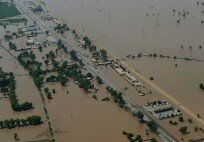
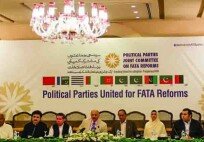
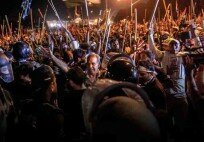




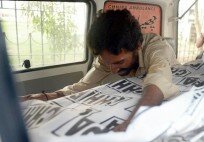
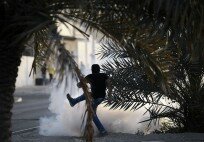
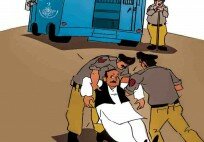

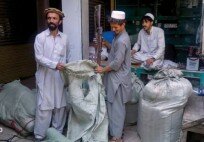









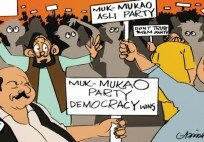
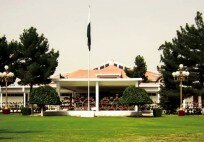






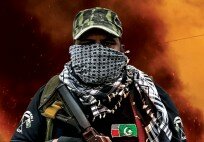
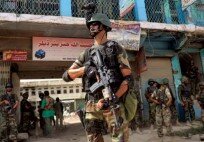
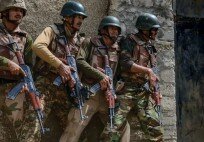
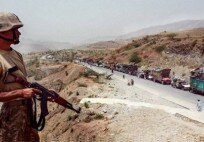









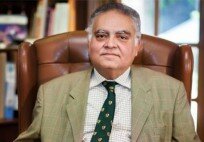









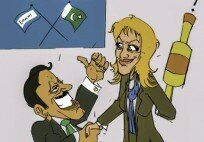





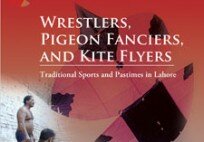

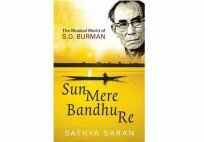
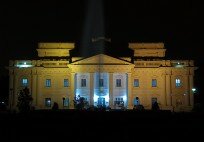
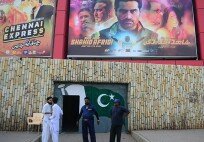









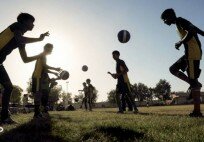





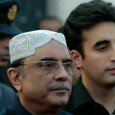
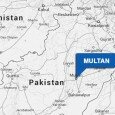
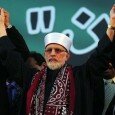
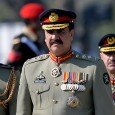

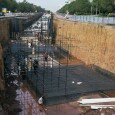
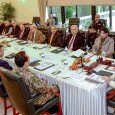
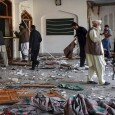
Recent Comments